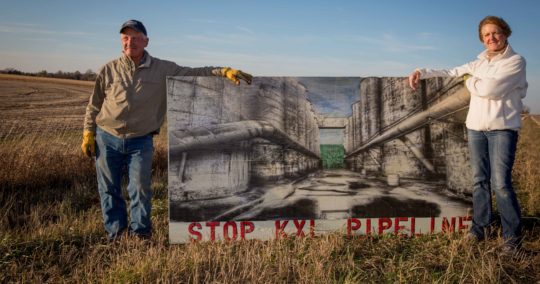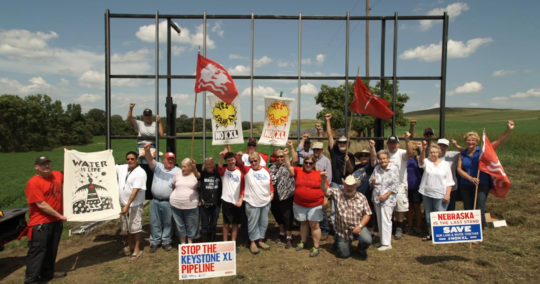

(photo by Mary Anne Andrei)
ATTENTION LINCOLN RESIDENTS AND LES RATEPAYERS: Very soon, leaders at Lincoln Electric System will be meeting to discuss some important budget issues. LES has been given a proposal for a Clean Local Energy Available Now (CLEAN) project that would allow Lincoln residents and businesses to generate clean solar energy and power their community and local economy. LES needs to hear from Lincoln residents that we want investment in clean, local energy.
Focus groups conducted in Lincoln during September 2012 found that, regardless of age, gender, income level or political affiliation, Lincoln residents want clean, renewable energy to be a central part of Lincoln’s future.[1] Lincoln residents were very surprised and extremely frustrated that over 85% of Lincoln’s energy comes from coal generation. They want Lincoln’s generation portfolio diversified and think investing in local power generation is a wise step for Lincoln and Lincoln’s future.
Again, regardless of age, gender, income level or political affiliation, an overwhelming majority (94%) of the participants said they would be willing to pay an additional $1.60 to $3.30 per month in order to support local renewable energy development. A solid majority of participants also said they would be willing to pay more than $3.30 per month if it meant developing local energy generation more quickly. These attitudes are consistent with national polling, which has shown that 76 percent of Americans think that the United States should move to a sustainable energy future through “a reduction in our reliance on nuclear power, natural gas and coal, and instead, launch a national initiative to boost renewable energy and energy efficiency.”[2]
When presented with the concept of a CLEAN pilot program for Lincoln, almost all participants in the focus group wanted LES to get started with a CLEAN project immediately as part of a program to invest in local power production and to reduce Lincoln’s dependence on coal. Almost all Lincoln residents who participated in the focus groups viewed the CLEAN pilot project as just the beginning: a first step down the road to producing clean energy locally in Lincoln. Many of them wanted to know how they could participate in the program. Most questioned why the city hadn’t already implemented such a program. Other national surveys have shown that 75 percent of Americans think that “Congress and state public utility commissions that regulate electric utilities should put more emphasis on renewable energy and increased energy efficiency and less emphasis on major investments in new nuclear, coal and natural gas plants.”[3]
Focus groups are the gold standard in the polling world to gauge how the public feels about a subject. Focus groups allow for discussion and for experts to also gauge non-verbal communications.[4] Based on these findings, it is clear that Lincoln residents believe that the status quo energy generation portfolio is unsustainable and that steps toward cleaner, local energy options should begin immediately. They see the CLEAN program as an obvious win-win: an investment in Lincoln’s economy that will generate jobs and development for years to come and a common sense way to begin replacing coal power with clean energy. When informed of it, Lincoln customer-owners of the LES system are very dissatisfied with LES’s coal-heavy generation portfolio. Lincoln residents want LES to invest in Lincoln’s own CLEAN pilot program and, as ratepayers, they are ready to support that local investment in a better future.
[1] Focus group participants were randomly selected to represent a balanced, representative cross–section of Lincoln’s residents.
[2] ORC International. “Americans and Energy Policy: The Myth of the Partisan Divide.” Survey for the Civil Society Institute, April 25, 2012. Available:http://www.civilsocietyinstitute.org/media/042512release.cfm
[3] IBID
[4] Nagle, Barry, and Nichelle Williams. “Methodology Brief: Introduction to Focus Groups.” Center for Assessment, Planning & Accountability. Available: http://www.uncfsp.org/projects/userfiles/File/FocusGroupBrief.pdf



